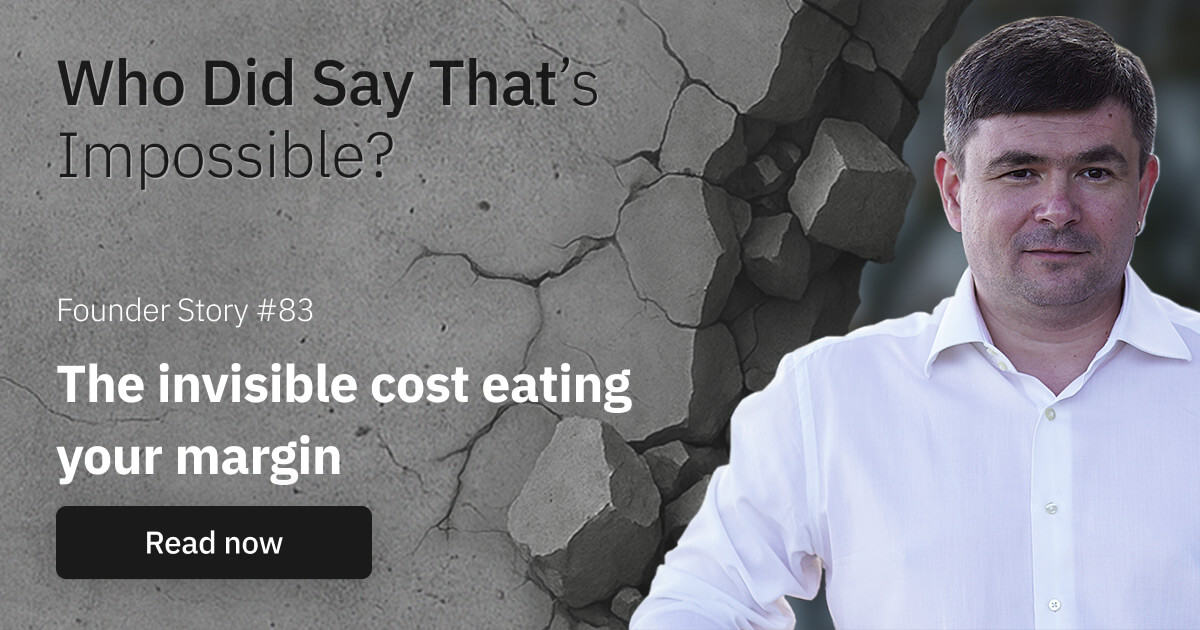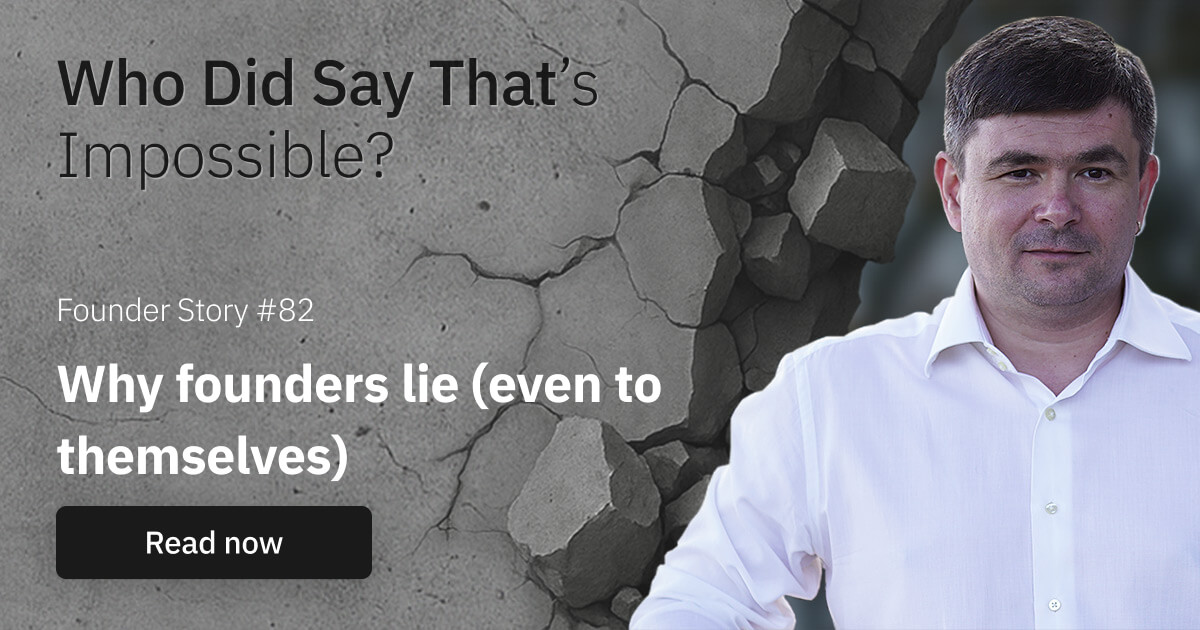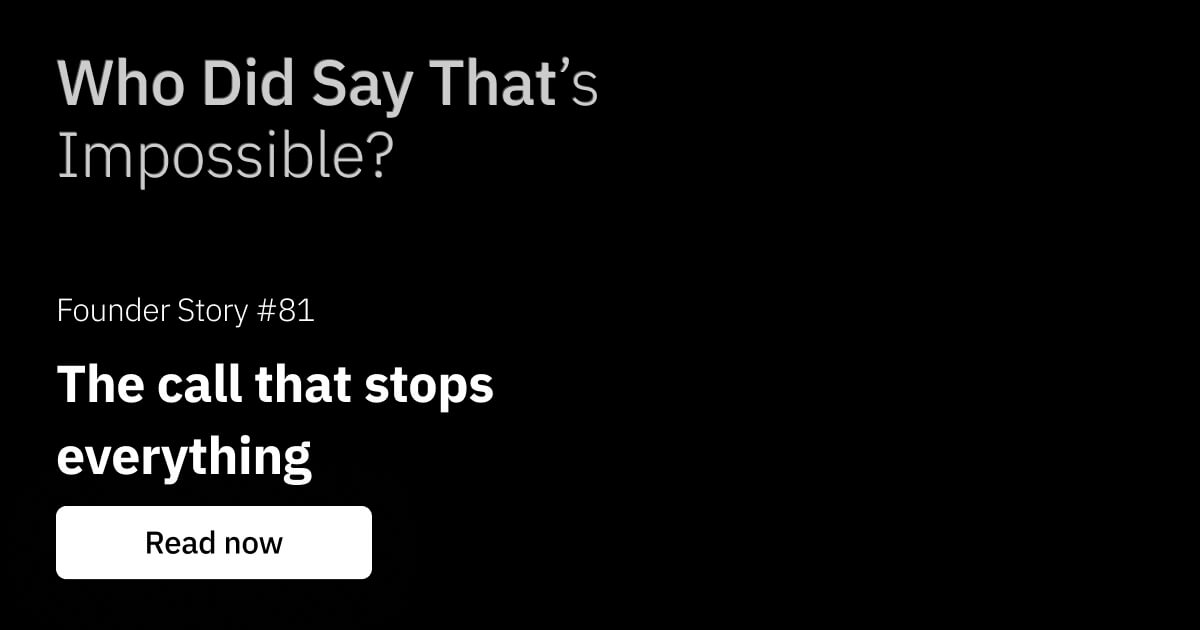What Are Empires Made Of?
Or a minute of the details
Continuing the theme from my last post about the power of having a clear goal, let’s talk about the key differences between building a business empire and a lifestyle business.
What is a business empire?
It’s a massive, high-impact machine.
One that shapes markets, influences industries, and sometimes steers entire economies.
Think public companies, powerful family-owned firms, investment giants.
Key traits:
- Scale & impact — thousands of employees, major impact on industry and economy
- Innovation and adaptability — trendsetters and tech adopters
- Diversification — operate across sectors to hedge risks
- Global presence — offices, clients, and deals worldwide
- Financial firepower — massive budgets, bold investments, market share battles
What is a lifestyle business?
A business built not to dominate — but to live on your own terms.
For these founders, success is not just about money.
It’s about:
- balance
- freedom
- flexibility
- fulfillment
Key traits:
- Personal satisfaction > scale
- Freedom to work how and where you want
- Small and lean setups — solo, family, or partner-run
- Life-first mindset — not just growth for growth’s sake
- Minimal ops — automation and clarity over big teams
The real difference? The goal.
Empires are built for power.
Lifestyle businesses are built for freedom.
Empires aim to win big.
Lifestyle founders aim to live well.
Empires are limitless — in ambition, risk, and scale.
Lifestyle businesses are grounded — in values, clarity, and life quality.
There’s no easy road
Building an empire takes huge resources — mental, physical, and emotional.
It’s a path lined with stress, compromises, and messy decisions:
- tough calls
- hardball tactics
- moral grey zones
- pressure and burnout
- accountability to investors, teams, and markets
Everyone wants the yacht, the villa, the business class seats.
Few want the price tag that comes with them.
Lifestyle businesses also demand their share of effort.
They’re just a different kind of challenge.
- Systems over hustle
- Self-honesty over ego
- Sustainability over scale
And no — it’s not about doing nothing.
Today, in the digital age, it’s 100% possible to run a global business from a laptop.
Just one laptop — and you’re the CEO of your life.
But yeah, you’ll still have to work for it.
Stability and freedom don’t show up by accident.
Just like anything else worth having.
What They Have in Common: Systems
Without systems, there’s no empire — and no lifestyle business either.
Systems are what let you break free from the limits of your 24-hour day.
They enable:
- Repeatable processes
- Smoother daily operations
- Scaling without burning out
- Staying aligned with your vision
- Founder freedom from the grind
- Delegation without losing quality
Solid systems = less chaos = more freedom.
Think of it like driving a car.
If all systems are running smoothly, you can focus on direction and speed.
If not, you're stuck on the side of the road fixing the engine — every. single. time.
Business is a Black Box
At the beginning, the business “black box” is empty.
As it grows, it fills up — with habits, systems, workflows.
Some good. Some… not so much.
What’s inside the black box is what separates one kind of business from another.
And the contents of that box come from one place: your goal.
You’re the one who designs what goes inside.
How do you design a goal?
The best method I know: a goal tree.
A clear, connected map of what needs to be built and aligned to actually reach the result you want.

So, What’s Inside?
A business is made up of interconnected elements.
There are many ways to define and structure these elements.
Here are three popular frameworks:
EOS (Entrepreneurial Operating System)
- Vision
- Data
- Process
- Traction
- Issues
- People
eMyth
- Finance
- Marketing
- Management
- Lead generation
- Lead conversion
- Customer service
Michael Porter’s Value Chain
- Inbound logistics
- Operations
- Outbound logistics
- Marketing & sales
- Service
- Infrastructure
- HR
- Technology
- Procurement
Personally, I prefer Porter’s value chain, but I often mix in elements from EOS and eMyth, depending on the business type and context.
Everything Is Connected
Tweak one piece — and five others shift with it.
Building a system is like constructing a castle out of Lego.
Except everyone’s using different pieces.
It takes patience, focus, and a commitment to seeing it through.
For small businesses, the exact structure doesn’t matter as much.
What does matter:
- making sure no critical element is ignored when designing your goals
- and checking each one against your strategy
Because you’re not building a business for the sake of processes.
You’re building it to get somewhere.
Disclaimer.
Every business has its nuances, and every founder has their unique context and resources. Whether or not my advice applies depends on your situation, experience, and needs. But one thing is universal—use your brain.
Think about how to apply the advice in your context before acting.
Your way.
- Eugene
Join the “most offbeat” Businessletter on entrepreneurship.

Hi, I’m Eugene.
20 years later — 80 people, 3 continents, 7-figure revenue.
But for many years, I was the bottleneck in my own business.
Now I help founders escape the same trap. Through systems that actually work, not theory.
I write weekly: operational war stories, decision systems, and lessons learned the hard way.
For founders who want to build without burning out.
More Stories
Founder Stories

The invisible cost eating your margin
Or minute of realizing you're paying for time you can't bill

Why founders lie (even to themselves)
Or minute of freedom that comes after you exit



.webp)
